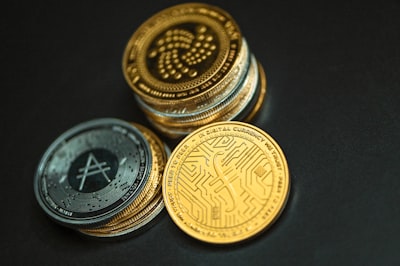
Enhancing Verification and Trust
In a digital age where authenticity and trust are essential, the verification process for digital credentials plays a crucial role. Deloitte's utilization of blockchain technology ensures that these credentials are secure, tamper-proof, and easily verifiable. By storing all relevant data on a decentralized ledger, Deloitte eliminates the need for a central authority, reducing the risk of fraud and manipulation.
With blockchain, digital credentials can be securely stored, managed, and verified, allowing individuals and organizations to have confidence in the authenticity of their qualifications and achievements. This integration will not only benefit professionals in various industries but also strengthen the overall integrity of educational institutions and certification bodies.
Ensuring Data Privacy
Privacy has become a significant concern in the digital era, and blockchain technology offers a solution to this issue. By leveraging the decentralized nature of blockchain, Deloitte ensures that users have full control over their personal information and credentials. Instead of relying on a single central database, which can be vulnerable to data breaches and unauthorized access, blockchain distributes data across multiple nodes, enhancing security and privacy.
Moreover, blockchain's transparent and immutable nature enables individuals to share their verified credentials with potential employers or educational institutions without compromising sensitive personal information. This empowers users to maintain control over their data and only disclose the necessary information, enhancing privacy rights in an increasingly interconnected world.
Implications for Society and Markets
The integration of blockchain technology for verifying digital credentials has wide-reaching implications for society and markets:
- Enhanced Trust: The use of blockchain ensures the integrity and authenticity of digital credentials, fostering trust between individuals, organizations, and educational institutions.
- Reduced Fraud: Blockchain's decentralized nature reduces the risk of fraud and tampering, enhancing the credibility of certifications and qualifications.
- Efficiency and Cost Savings: With blockchain, the verification process becomes faster, more efficient, and less expensive as compared to traditional methods. This can lead to significant cost savings for individuals and organizations.
- Global Accessibility: By digitizing and verifying credentials on the blockchain, individuals from all corners of the world gain access to opportunities and recognition, bridging the gap between countries and promoting inclusivity.
- Empowerment: Blockchain technology gives individuals greater control over their personal data and credentials, empowering them to share their verified achievements while preserving privacy.
- Standardization of Credentials: By implementing blockchain for credential verification, a standardized system for verifying qualifications can be established, ensuring consistency and reliability across industries and borders.
As the world becomes increasingly digitized, blockchain technology offers solutions to age-old problems, such as trust, privacy, and data security. Deloitte's integration of blockchain for verifying digital credentials is a significant step towards a more secure and transparent future.
Frequently Asked Questions
- What are digital credentials?
- How does blockchain technology enhance verification?
- What are the benefits of using blockchain for verifying digital credentials?
- Can anyone access the verified credentials stored on the blockchain?
Digital credentials are electronic versions of educational certificates, qualifications, and other achievements that are stored and shared digitally.
Blockchain technology provides a decentralized and tamper-proof ledger that ensures the authenticity and integrity of digital credentials, making verification more reliable and secure.
Using blockchain for verifying digital credentials leads to enhanced trust, reduced fraud, improved efficiency, increased accessibility, greater empowerment, and the establishment of standardized credential verification systems.
No. Blockchain technology enables individuals to have control over their verified credentials and only share them with authorized parties, maintaining privacy and data security.